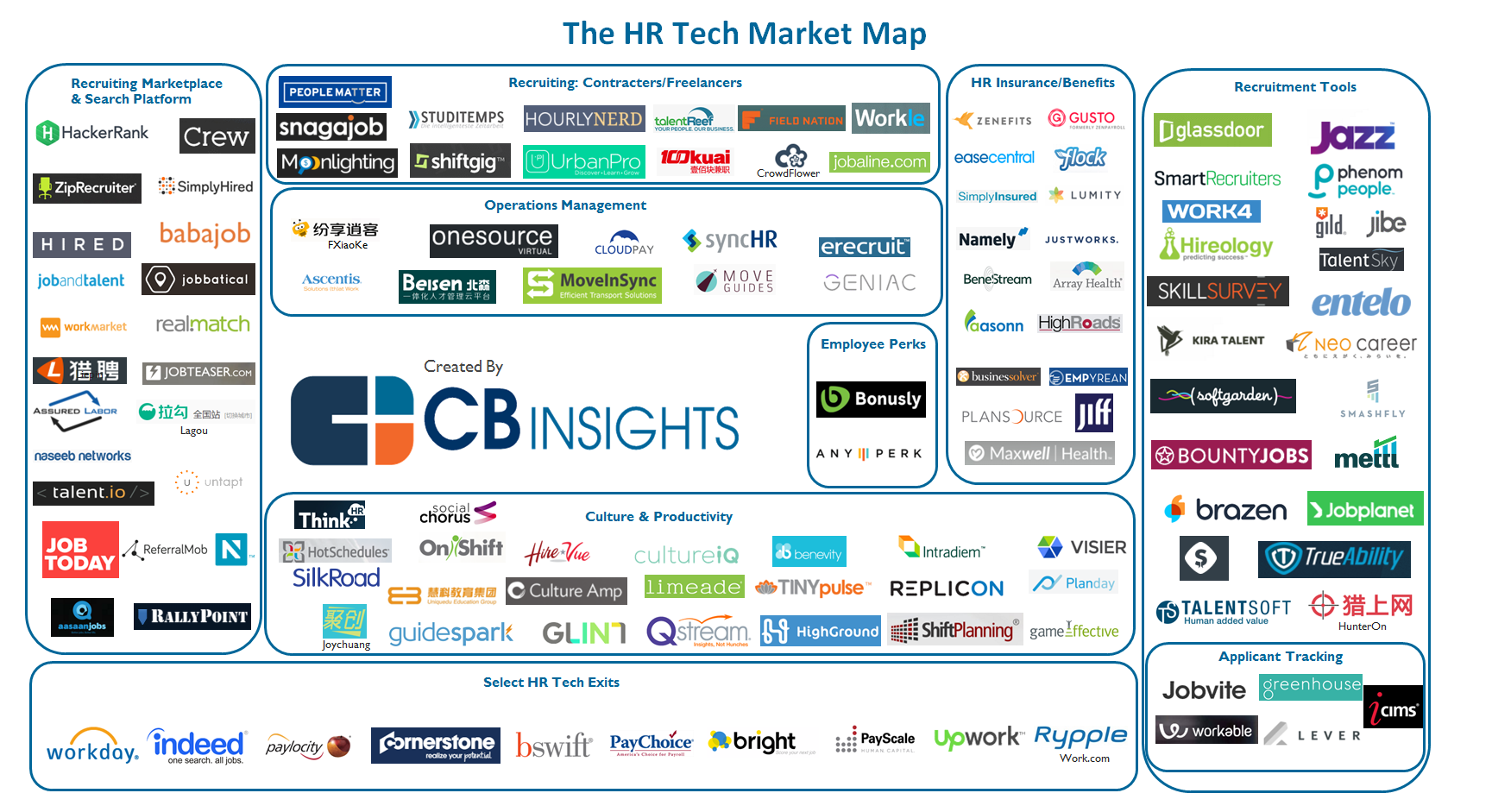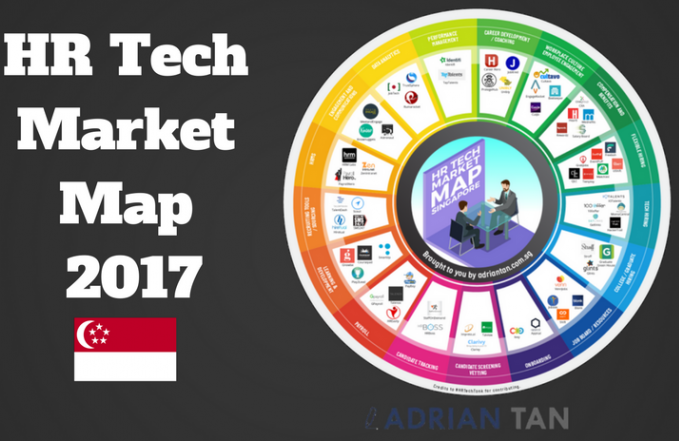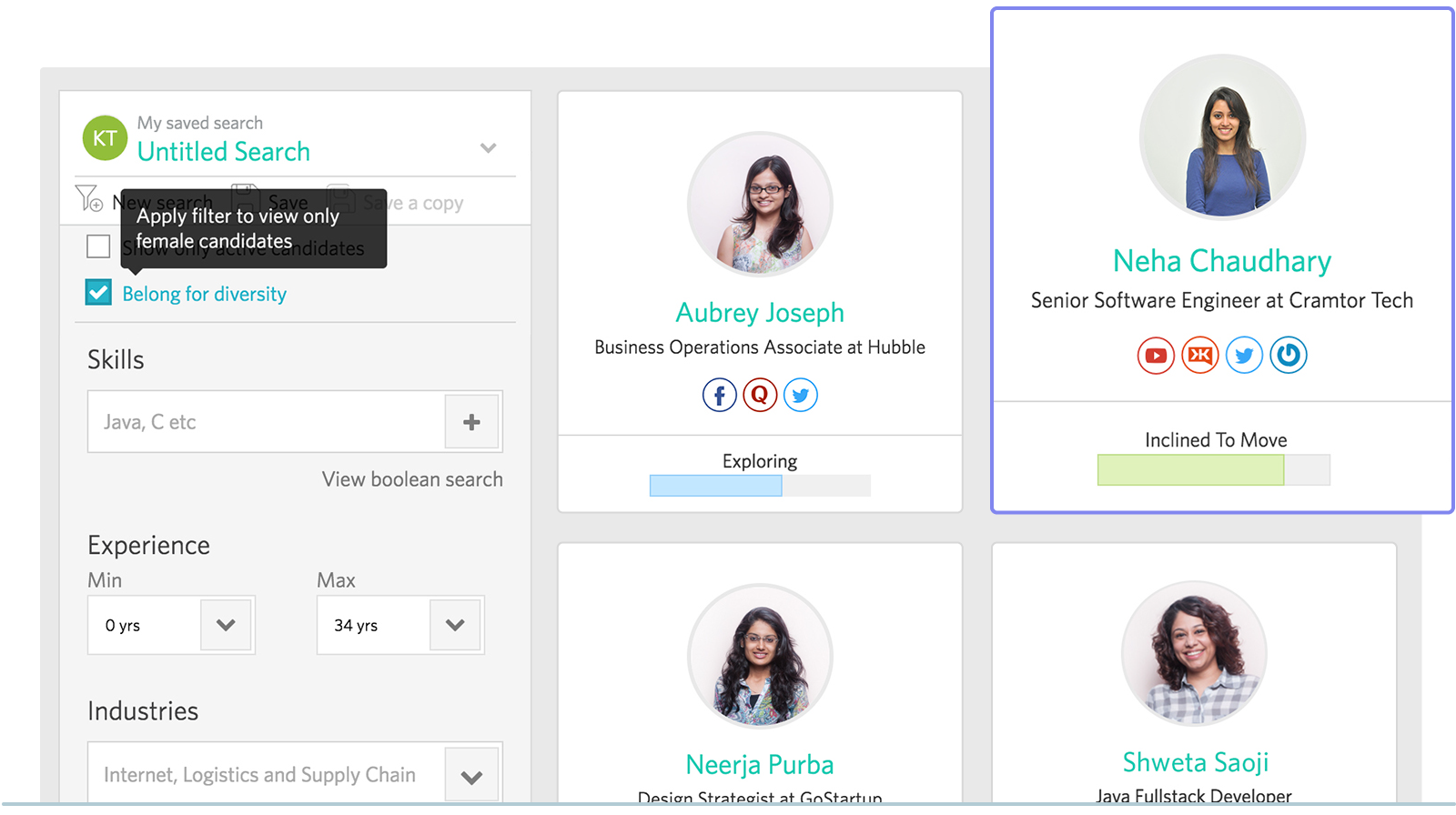“Doing away with the yearly appraisals that nobody likes”: HR tech in 2018
We talk to Adrian Tan, cofounder of The Resource Group
Contributors are not employed, compensated or governed by TD, opinions and statements are from the contributor directly
 Adrian Tan, the cofounder of The Resource Group, will be talking at the upcoming TD HR Executive Summit about HR technology, and how it will disrupt the industry in the years to come.
Adrian Tan, the cofounder of The Resource Group, will be talking at the upcoming TD HR Executive Summit about HR technology, and how it will disrupt the industry in the years to come.
I spoke to him for this week’s podcast to learn how HR departments will operate in the future:
The below is an abridged version of the podcast. Tan speaks:
Background
I was looking at an HR tech map created by a company called CB Insights, an American company that showcases mainly US and European markets. I thought to myself, ‘Is there a version that covers the Singaporean market?’. I spent a few hours searching online but I couldn’t find anything.
 I realised I needed some information and it didn’t exist so I created it myself – the HR Tech Market Map. I eventually found 71 companies and I realised how huge the HR tech market was in Singapore. I have just updated the list this year and found that there are over 120 (not all of them are based in Singapore but use it as a regional HQ).
I realised I needed some information and it didn’t exist so I created it myself – the HR Tech Market Map. I eventually found 71 companies and I realised how huge the HR tech market was in Singapore. I have just updated the list this year and found that there are over 120 (not all of them are based in Singapore but use it as a regional HQ).
Along the way I profiled HR consultancy business for small to medium enterprises (SMEs) and I wanted to see how we could blend these two together. So as part of our consultancy we now help to make the right recommendation across each of these companies.
 With 120 companies and growing, to really identify the right solution within any organisation it can be really tricky. Without the right information or the right means of comparison, it will take months to identify what you truly need and that’s where we come in.
With 120 companies and growing, to really identify the right solution within any organisation it can be really tricky. Without the right information or the right means of comparison, it will take months to identify what you truly need and that’s where we come in.
The changing landscape of HR tech
Five or six years ago nobody was talking about employee engagement or experience, and 10 years ago nobody was talking about employer branding but things have changed drastically. Many small players are coming in to target specific areas; for example, they deep-dive into employee engagement, or video interviews.
I’ll be talking at the summit about, for example, AI, bots, and identifying and pre-screening an individual based on their social footprint. The larger adoption at the moment is in the space of screening. This means communicating with interested jobseekers to identify whether they are a good fit before they advance to other stages.
“Benchmark them against… the top performers in your organisation”
There are a few outstanding companies that are gaining traction [in this] as they have gamified the assessment experience. Instead of taking an assessment test, jobseekers have to download an app, which behaves like a game.
The results from a series of games will be used to benchmark them against the same set of games that the top performers in your organisation have already completed. Looking at many different data points and putting in a layer of neuroscience – and using AI to continuously measure the results – you are able to predict the suitability of this jobseeker.
Social footprints and bots

There are companies going beyond the usual AI algorithms to find new staff, for example Belong who are based in India. They look at attributes that you may not usually associate with hiring – for example what you retweet who you follow on Twitter. They use that information to predict whether the individual may be a good hire, referencing against the behaviour of the employees already in your company.
Chatbots are being used to speed up the entire recruitment process and people management process. They act as your HR administrator; you will often have cases where your employees need to know about the amount of leave that they have taken and if they can take leave next week, or when pay day is.
“You simply key in your question to the bot and it will be able to retrieve the information, almost instantaneously”
Traditionally you would pick up the phone and call or email your HR department. The HR administrator is always doing the same thing or always being asked the same question; now bots are coming into the picture. You simply key in your question to the bot and it will be able to retrieve the information, almost instantaneously, and it will let you know that, for example, you have 10 days of leave left.
One of the leading banks in Singapore, DBS, recently announced that they will be rolling out screening bots – it’s a game changer. This is really helping to raise the awareness of bots and has made others more courageous to give it a try.
The death of the yearly appraisal
There’s also a huge potential for companies to look into the employee experience space. In Singapore, the focus right now is very much an employee engagement, getting real-time feedback from your employees to find out how they are doing and if there is anything you can help them with.

This is related to performance management, and doing away with the yearly appraisals that nobody likes, and also into the space of people analytics, where big data related to how your employees function and perform will be crunched this will help you to identify who may be a better employee for different kinds of jobs.
I think the most prominent company that has done away with these yearly appraisals is Adobe. They have replaced it with micro realtime feedback. They reduce the friction for feedback between workers and their supervisors or managers. This usually takes the form of an app and so push notifications can remind you to take certain action and allows you to have an overview of where you stand at any point in time.
You don’t have to wait until the end of the year to know how you have performed. I was involved with these before I started my first company and it’s a very painful experience for both parties.
Blockchain and video
In Singapore there is a company that has adopted blockchain to provide an Ethereum-backed LinkedIn to help facilitate screening and background checks. For most companies a background check is a prerequisite; you usually have someone call the employee’s old company.
Chances are that somebody is going to give a glowing testimonial of the work you have done before, but that doesn’t necessarily represent the truth. This new version of LinkedIn is looking to get a majority consensus of certain skillsets that you have.
“Think of it like your personal TripAdvisor ranking”
People are incentivised to review what you have done before and to grade you accordingly. Think of it like your personal TripAdvisor ranking. There are so many reviews that there is a higher chance that the review will be more likely to represent what is really out there. Your potential employer can tap into it to have a good gauge of your credibility.
For companies looking to hire 100 employees and above on a regular basis there are a number of opportunities where technology can come into play, particularly if millennials are the key candidate market.
Companies need to be open to candidates around the world and this is where video interviews come in to play. Applicants go online and answer a series of questions that have been pre-recorded by the recruiter. This will help to reduce the number of applicants who were perhaps too trigger happy to apply!
 Some companies have gone one step further and have integrated facial recognition or vocal tech so they can identify micro expression changes in your face or voice to see if you were telling the truth or not.
Some companies have gone one step further and have integrated facial recognition or vocal tech so they can identify micro expression changes in your face or voice to see if you were telling the truth or not.
Unilever in the US has already adopted this across the country.
More information
Adrian Tan is speaking at the TD HR Executive Summit on the 21 September in Bangkok. For more information visit Adrian’s blog at adriantan.com.SG.


Comments are closed.